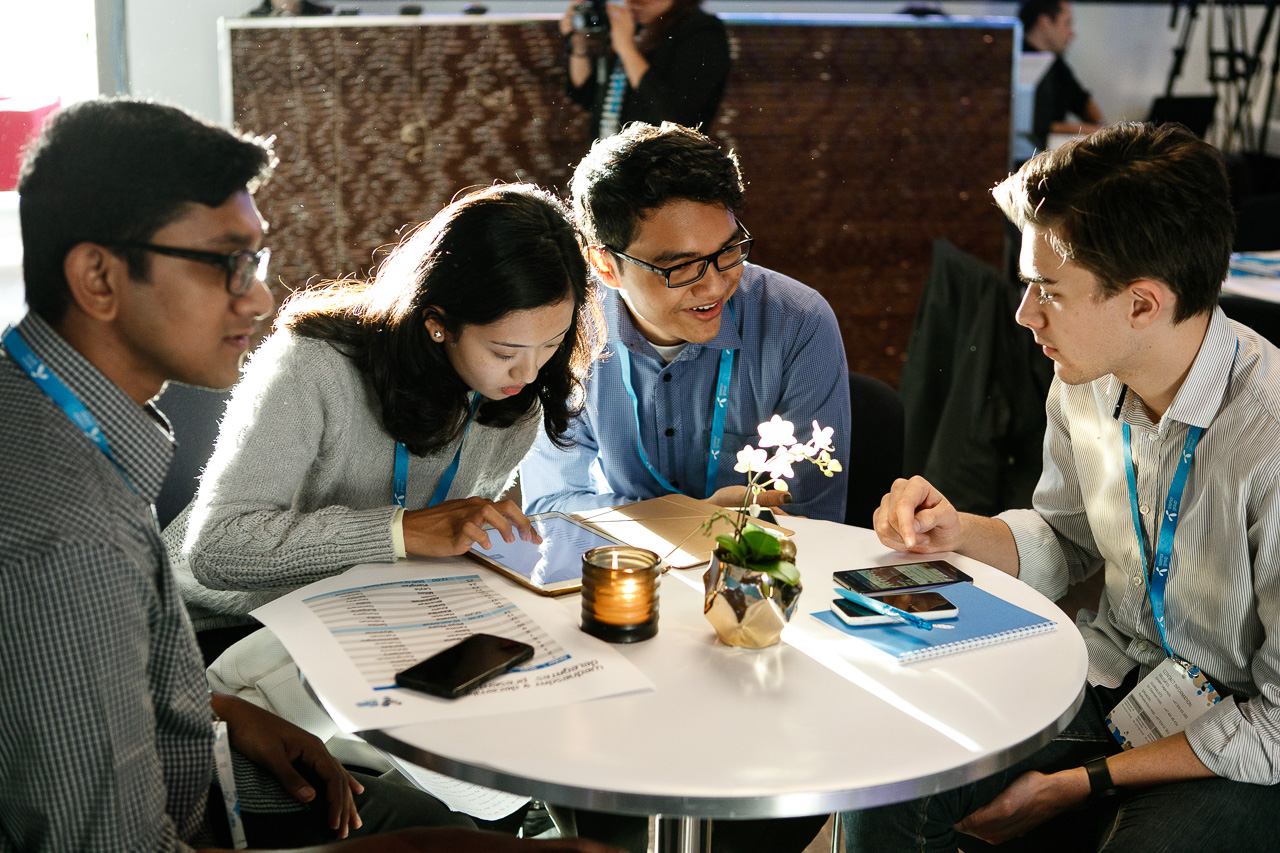MANY of the Telenor Youth Forum (TYF) delegates we spoke to said the highlight of their time in Norway was, naturally, getting to attend the Nobel Peace Prize events, but the forum itself was pretty awesome.
It was a gathering of 25 remarkable young people from around the world, and they were to put their heads together to find solutions to the problem posed by this year’s theme – “Knowledge for all”.
The list of speakers was pretty impressive too. Wikipedia co-founder Jimmy Wales’ session, for example, was packed with Telenor employees eager to hear from Wales, but the lucky TYF delegates were the only ones who could ask questions. Even us journalists didn’t get a word in… #jello
The selection of two Malaysian delegates – Heidy Quah and Adly Chan – was done by Digi, which is part of the Telenor Group.
Quah’s winning idea was a micro-financing project to help refugees in Malaysia. Her organisation, Refuge For The Refugees, provides refugee schools with Internet access so they can learn about digital entrepreneurship.
They then help sell the refugees’ products, returning 80% of the profits to the community and 20% to the schools.
“I was a bit intimidated by the other delegates at first, because some of them have achieved so much!” she said.
Quah was particularly impressed by Haroon Yasin, 23, who started a school in a slum in Pakistan.
“He had never thought about starting a school there, because his parents always told him to avoid the slums. He went in on his way back from college one day, and after seeing all that was going on, he rented a small room, painted it up and said it was open for small kids to hang out.
“But parents started thanking him for opening a school, and that’s how it became one!” said Quah.
The delegates were each given two minutes to pitch their ideas for providing “knowledge for all” to a room full of Telenor top brass, including CEO Sigve Brekke, and leading start-up business owners from the region.

Heidy making her “elevator pitch” to a room full of Telenor top brass, including Telenor Group CEO Sigve Brekke.
Chan’s idea was to create an online buddy system between urban and rural students to bridge the education gap in Malaysia. The platform will allow urban students to act as tutors.
“I’ve had this idea for a while, but I wasn’t sure how to implement it,” said Chan.
“A previous TYF delegate told me how the forum helped her implement her idea, so I decided to give it a go, and it was really helpful!”
Chan is now determined to make her idea a reality, especially after seeing what the speakers and other delegates have achieved.
“I’m now looking for someone to help build a website, and I hope to bring this concept to other countries as well.”
Digi head of communications and sustainability Quah Yean Nie said TYF allows Digi to engage with Malaysian youth and empower them to make an impact.
“We want to encourage young people to raise their voice for issues that matter, such as access to education,” said Yean Nie.
“The young Internet generation is uniquely positioned to advise us on how to build a better digital future for all. That’s why we want to engage them to explore how Digi, Telenor and mobile technology can be part of driving inclusive change and improving access to knowledge.”
To find out more about the Telenor Youth Forum, click here.





Tell us what you think!